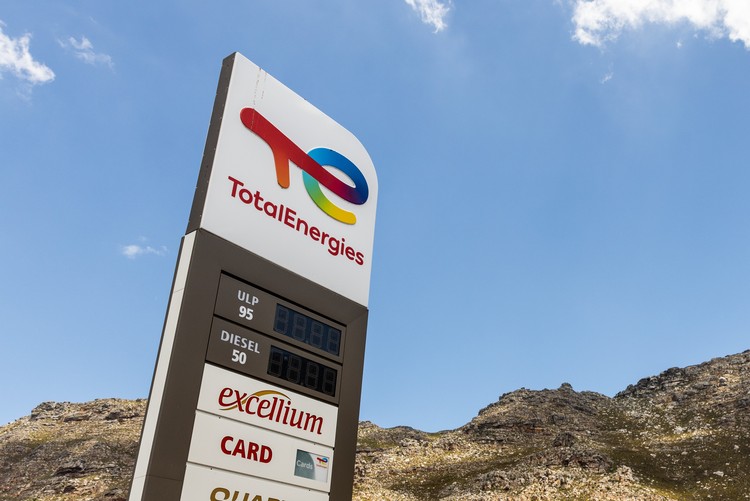Court blocks TotalEnergies oil exploration from Cape Agulhas to Cape Town
TotalEnergies can still submit new assessments and conduct a fresh public participation process
The Western Cape High Court has set aside environmental authorisation for a TotalEnergies’ offshore oil and gas exploration project. Archive photo: Ashraf Hendricks
- The Western Cape High Court has set aside the environmental authorisation for TotalEnergies’ offshore oil and gas exploration project between Cape Town and Cape Agulhas.
- The court found the company’s environmental impact assessment was flawed and lacked proper public participation.
- Judge Nobahle Mangcu-Lockwood said TotalEnergies failed to properly consider the economic risks of an oil spill on coastal communities among other shortcomings.
- TotalEnergies can submit new assessments to address the court’s findings, but must conduct a fresh public participation process.
- The company continues to pursue offshore exploration along the West Coast.
Environmental organisations are celebrating a ruling by the Western Cape High Court that has set aside the environmental authorisation granted to TotalEnergies for offshore oil and gas exploration between Cape Town and Cape Agulhas.
The ruling by Judge Nobahle Mangcu-Lockwood found that TotalEnergies’ environmental impact report was flawed, did not properly consider the economic risk of an oil spill, failed to consider climate change, and lacked proper public participation.
The Green Connection and Natural Justice launched their court action in March 2024, challenging TotalEnergies’ environmental authorisation.
They challenged the decisions by the director-general for mineral resources and energy and the Minister of Forestry, Fisheries, and the Environment to grant environmental authorisation and dismissing the appeals by environmental groups.
TotalEnergies, Shell, and PetroSA are co-holders of the exploration right for the area delineated as block 5/6/7. Shell joined Total as a respondent.
The judge has, however, given TotalEnergies an opportunity to “submit new or amended assessments” for reconsideration that would rectify the “deficiencies” found by the court. A new public participation process must also be conducted.
The court found that TotalEnergies’ final Environmental Impact Report failed to address the economic consequences of an oil spill and its impact on local coastal communities.
The court also found that the decision was “woefully deficient” in considering the effect of the project on coastal public property and preservation as required by the Integrated Coastal Management Act.
The court also found the public participation process was not procedurally fair and did not comply with the requirements of the National Environmental Management Act.
Judge Mangcu-Lockwood said that it was “problematic” that there was no public participation process for blowout and the oil spill contingency plans.
“It is one of the foundational principles of [the National Environmental Management Act (NEMA)] that the participation of all interested and affected parties must be promoted, and they must be provided with a reasonable opportunity to influence the outcome of the decision at hand,” said the judge.
During the litigation, TotalEnergies announced its decision to withdraw from the exploration of block 5/6/7, where it holds a 40% interest. But the court, granting a joinder of Shell as fifth respondent alongside TotalEnergies, said that the transfer of rights will not change the “scope” of the environmental authorisation.
More court battles ahead
TotalEnergies still has its sights set on offshore exploration in the Deep Water Orange Basin off the West Coast. This too is being challenged in court by Green Connection, the Aukotowa small-scale fisheries cooperative based in Port Nolloth, and Natural Justice.
In their founding papers, the groups argue that natural gas should not be part of South Africa’s just transition and net-zero emissions by 2050. TotalEnergies has also taken control of another area off the West Coast, Block 3B/4B, as well as the Outeniqua South offshore block.
The Green Connection said in a statement following the judgment that it was a “big win for transparency, precaution, and the rights of coastal communities and small-scale fishers”.
Natural Justice programme manager Melissa Groenink-Groves said in a statement that the judgment “confirms that companies must follow due process, undertake comprehensive assessments and provide communities with an opportunity to have their voices heard”.
A spokesperson for TotalEnergies, who asked not to be named, said the company, along with its joint venture partners, would respect the judicial process and will “legally assess the judgment in more detail and decide on the course of action.”
The spokesperson said that “from the outset” the exploration project “complied with all required local regulations, in particular environmental and social”.
Comment from the Department of Mineral Resources and the Department of Forestry, Fisheries, and the Environment will be added when received.
Support independent journalism
Donate using Payfast

Don't miss out on the latest news
We respect your privacy, and promise we won't spam you.
Next: Hundreds shut down Soweto mall after e-hailing driver shot dead and set alight
Previous: Polokwane protesters demand mayor’s removal, allege corruption
© 2025 GroundUp. This article is licensed under a Creative Commons Attribution-NoDerivatives 4.0 International License.
You may republish this article, so long as you credit the authors and GroundUp, and do not change the text. Please include a link back to the original article.
We put an invisible pixel in the article so that we can count traffic to republishers. All analytics tools are solely on our servers. We do not give our logs to any third party. Logs are deleted after two weeks. We do not use any IP address identifying information except to count regional traffic. We are solely interested in counting hits, not tracking users. If you republish, please do not delete the invisible pixel.

